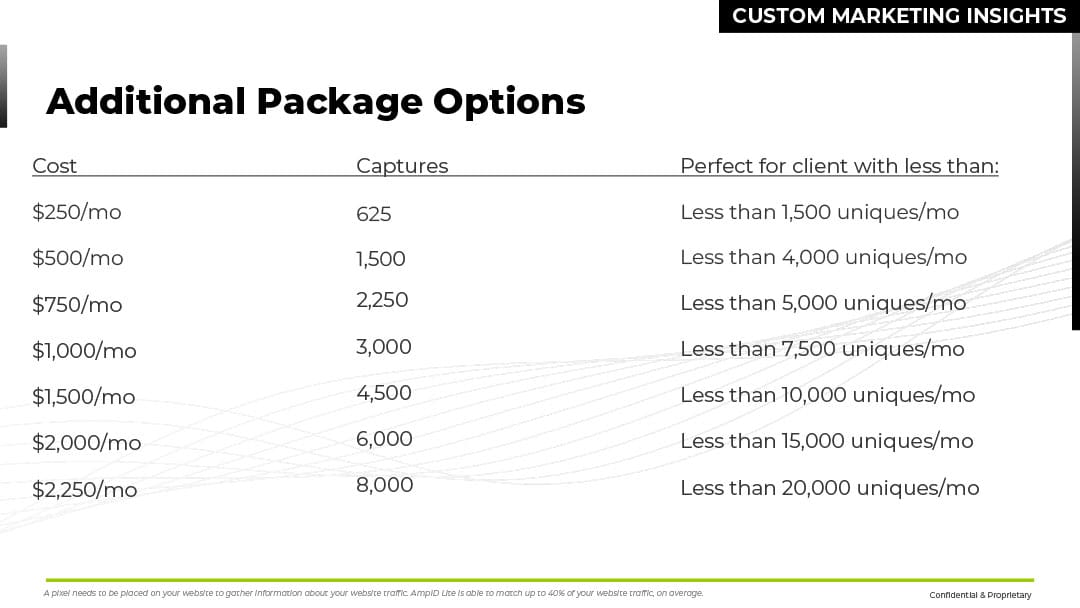The end of the tumultuous year that has been 2020 is in sight. At the beginning of the year, when the pandemic started, it seemed like there would eventually be a return to “normal.” With 2021 knocking at our door, it’s become clear that our normal has changed, and the way we live and do business has changed too. In the coming year business advertisers will need to diversify their marketing strategy and include accelerated communication trends, assess their use of third-party data, and improve their social consciousness if they want their brand to remain relevant in this new normal.
Diversify Marketing Strategy
It’s obvious that the time people spend online has increased this year making it more important than ever to have a diverse marketing strategy to ensure the right message is being delivered to the right audience at the right time. One key area business advertisers need to evaluate in 2021 is the social media platforms they utilize.
 Facebook is currently the go-to channel with 93% of social media advertisers buying ad space on the platform. However, Facebook users tend to be an older demographic with younger generations being drawn to more visual platforms like Instagram, TikTok, and Snapchat. Facebook has also experienced ad outages, one as recently as November of this year, which the timing of could have a major negative impact on brands using the platform as their only ad placement during a crucial time. Smart business advertisers will include testing of other appropriate platforms in their strategy for the coming year to ensure that not all of their eggs are in one basket.
Facebook is currently the go-to channel with 93% of social media advertisers buying ad space on the platform. However, Facebook users tend to be an older demographic with younger generations being drawn to more visual platforms like Instagram, TikTok, and Snapchat. Facebook has also experienced ad outages, one as recently as November of this year, which the timing of could have a major negative impact on brands using the platform as their only ad placement during a crucial time. Smart business advertisers will include testing of other appropriate platforms in their strategy for the coming year to ensure that not all of their eggs are in one basket.
Not only do business advertisers need to review the social media platforms they communicate on, they also need to review how they communicate. 2020, a year spent mostly in our homes, accelerated many digital marketing communication trends that give a more connected, human feel to the sales funnel. Personalization and conversational marketing should be an integral part of any brand’s marketing communication strategy going forward.
From chatbots, live chats, and messaging apps to interactive forms, landing pages, and FAQs, there are many different ways to add a conversational aspect to your online customer experience. Many brands have already embraced this idea and are finding creative ways to put it into action. Having a conversational tone helps business advertisers gain data on potential and current customers while adding value to the customer experience, ultimately making it easier for everyone.
Information gained in these conversations can then be used to personalize communication with the customer or lead. Business advertisers will need to think bigger than adding a name to an email. Personalization can take many forms such as offers and discounts, in a brand-developed app, product suggestions, reward programs, dynamic ads, and omni-channel campaigns.
Consumer Digital Privacy
Shifting to first-party data collection like conversational marketing, will be even more vital to business advertisers considering the next year will see a major focus on consumer digital privacy. Many big name platforms are changing their rules and digital privacy legislation is being reviewed and passed at both the state and federal level. Business advertisers will need to re-evaluate how they are identifying leads and potential customers if they want to continue to serve them the right message at the right time and be able to quantify the results of doing so.

In January of 2020 Google announced they will be phasing out support for third-party cookies on Chrome by 2022. With Chrome making up over 63% of the web browser market worldwide, this will have a big impact on business advertising that relies heavily on third-party data. Google is still allowing first-party cookies as well as working on their own web ecosystem called Privacy Sandbox, the goal of which is to be beneficial to both users and advertisers.
In early 2021 Apple is expected to release its App Tracking Transparency feature in the iOS 14 update. The update will force users to choose either allowing an app to track them across different apps and websites or opting out of being tracked with their Identifier for Advertisers (IDFA). This will limit the data business advertisers can collect to target their ads as well as limit the insight into what has caused a conversion to take place.
Currently, many larger business advertisers are using the California Consumer Privacy Act as a catalyst for their operations. However, other states like Illinois and Maine are passing their own legislation in regards to consumer digital privacy causing business advertisers to seek general rule from the federal level. Although the incoming Biden administration has a lot to handle with the healthcare crisis, a recent eMarketer report predicts that by the end of 2021 there will be a new overarching digital privacy bill passed.
With consumer digital privacy in mind, advertisers will need to pivot focus on how they collect and utilize first-party data. This will see a trend in business advertisers investing in things like email marketing, SMS programs, customer data platforms, and contextually targeted programmatic display ads.
Social Consciousness
A brand’s social consciousness, or lack thereof, has become more and more important in recent years especially with younger generations. Due to the major events of this year, it has been catapulted to the forefront. No longer is it enough to simply produce a product or provide a service. Consumers want to support businesses that have values that align with their own. They expect brands to address issues like social justice, mental health, the environment, and inclusivity as well as make an effort to effect positive change.
 “In June 2020, Mindshare found that 68% of US adults believed brands should speak out against racial inequality and injustice, while Visa found that 75% of millennials would support businesses and causes in response to social justice protests.” – Insider Intelligence
“In June 2020, Mindshare found that 68% of US adults believed brands should speak out against racial inequality and injustice, while Visa found that 75% of millennials would support businesses and causes in response to social justice protests.” – Insider Intelligence
2021 will see successful business advertisers focusing their efforts on social channels to establish a cultural identity, using more cause-driven messaging. The key to this will be authenticity as words without action will be easily spotted and brands will be held accountable by savvy consumers. It is essential for business advertisers to understand their target audience and find creative ways to connect with what is important to them. Criticism will be par for the course but standing up will reflect better than taking no action at all.
If we learned one thing from this crazy year it’s that anything can happen, especially the unexpected. Ultimately the best way forward is for business advertisers to have a customer-centric approach to their marketing strategy. 2021 will be fruitful for those who meet there customers where they are, respect their privacy, and do some good while they’re at it.
Looking for ways to take your business to the next level in 2021? Our experienced team is here to help guide you and your business. Contact Amplified Digital Agency today.



